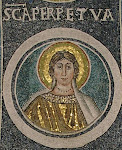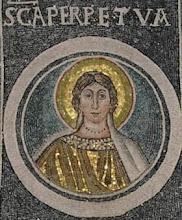Ephesians 2:8-10 8 For by grace you have been saved through faith. And this is not your own doing; it is the gift of God, 9 not a result of works, so that no one may boast. 10 For we are his workmanship, created in Christ Jesus for good works, which God prepared beforehand, that we should walk in them.
and
Matthew 7:22-23 On that day many will say to me, ‘Lord, Lord, did we not prophesy in your name, and cast out demons in your name, and do many mighty works in your name?’ 23 And then will I declare to them, ‘I never knew you; depart from me, you workers of lawlessness.’
I remember how surprised I was to learn that the people at the Episcopal seminary I attended thought that we earned out salvation through good works. It reminded me of a short story by Louis Auchincloss about a man who was had divorced his wife and was having trouble relating to his son, the child of the marriage. At the end of the story he resolved to devote himself to some cause.
Since then I have noticed that the MDG's have become a sort of works righteousness at the upper levels of the Episcopal hierarchy. Therefore, I was delighted to see what the Rev. Dr. Philip Turner believed was his most important point in his recent post The Presiding Bishop of TEC: Does She Know What She Is Doing? Turner+ recognized that the issue of her Easter message might "seem the least serious", but insisted that it is "the most serious and anxiety producing of all". Turner+ notes that the message focuses on moral action and relates this to the MDG's:
I note only that the significance of the resurrection of Christ is here presented in entirely moral terms. One might note as well that the office of The Presiding Bishop posted during Lent a new series of Stations of the Cross that called attention not to the passion of Christ but to the Millennium Development Goals. It would appear that both the cross and resurrection are understood in moral terms and in moral terms alone.
The point is this. If the Presiding Bishop in fact knows what she is doing, she is proposing a moral understanding of the Christian Gospel that appears to ignore or reject the fact that the cross and resurrection of Christ have through the ages been understood as having to do first of all with the conquest of sin and death and so reconciliation with God and redemption from the great enemies of human kind. One can only celebrate the Presiding Bishop's concerns for the environment and the alleviation of human want and suffering. However, for Christians these concerns serve as a witness to a more fundamental belief. In the cross and resurrection God has bridged the gap that separates us from the true source of our life and in so doing has opened for us a new way of life. The Easter message is first of all that sin and death have been defeated and that God in Christ has proved to be faithful to his promises.
It may be hard for some to believe, but we are created to do the particular good works that "God prepared beforehand, that we should walk in them." We earn no favor with God by doing the good works we select. And we absolutely earn no favor with God if we ignore his laws and then do the good works we select:
Matthew 7:22-23 On that day many will say to me, ‘Lord, Lord, did we not prophesy in your name, and cast out demons in your name, and do many mighty works in your name?’ 23 And then will I declare to them, ‘I never knew you; depart from me, you workers of lawlessness.’





No comments:
Post a Comment